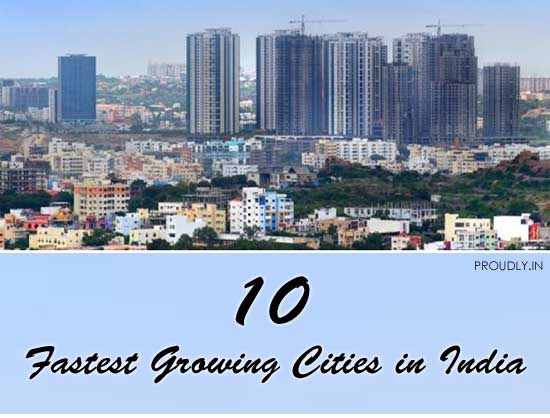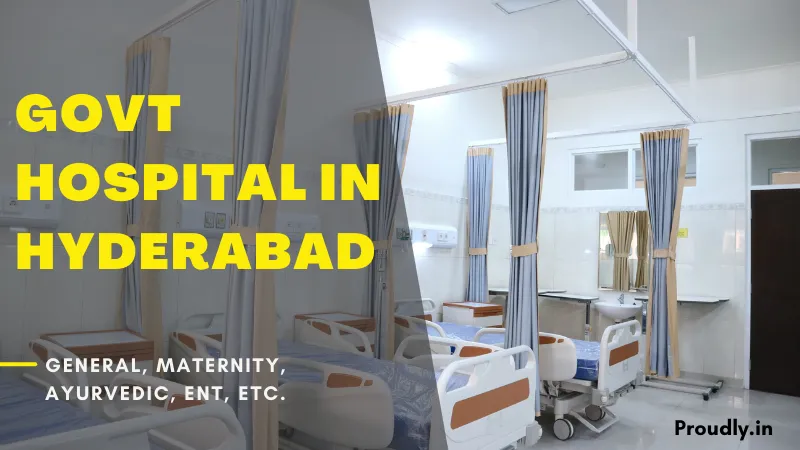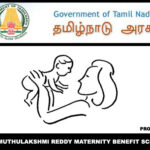What is the Employees’ State Insurance (ESI) Scheme? Full Details
India is known for introducing a wide range of schemes solely for the welfare of its citizens; and why not? As a rapidly developing and growing country across the world, the Indian Government has to make sure that the citizens are happy with their jobs and are provided with basic security or safety measures.
One such amazing scheme introduced by the Indian Government is the Employees State Insurance or the ESI scheme. As the name suggests, the ESI scheme is a self-financed or contributory healthcare scheme. Under this scheme, employees are provided insurance and other financial benefits in cases of a medical emergency.
The Employees State Insurance is a contributory scheme involving significant contributions from both, the employee and the employer. This scheme provided financial security and other benefits in cases of a medical emergency. This healthcare scheme offers multiple benefits for the employees too.
It protects the employees in any case of an ailment, maternity, demise, or disablement because of work damage and work-related ailment. This scheme allows the employees to have easier access to medical treatment, medicinal amenities, and monetary compensation along with other benefits or support.
The insurance can be claimed by a family member of the employee in cases of demise or mishaps.
Every company or business or service provider that employs more than 10 people is supposed to get registered with the ESIC scheme compulsorily. Any employee who has a monthly salary of or above 21000 rupees can contribute up to 1.75% of his salary to the ESI scheme.
However, the employer has to contribute up to 4% to the ESI scheme respectively. The Employee State Insurance Scheme is enforced in almost every state today and is spread across more than 800 centers in the country.
Employees’ State Insurance (ESIC) Scheme Details:
| Department Name: | Employees’ State Insurance Corporation |
| Scheme Name: | ESI Scheme |
| Website: | https://www.esic.nic.in |
| Scheme Status: | Open |
| Address: | ESIC, Panchdeep Bhawan, CIG Marg, New Delhi – 110002 |
| Contact Phone Number: | 01123234092 |
| Toll-Free Helpline Number: | 1800-112-526 |
| Medical Helpline Number: | 1800-113-839 |

ESI Benefits for Family Members & Beneficiary:
Each social security payment made under the ESIC helps the beneficiary without putting any extra burden on his earnings, during urgent medical and other contingencies. The following are the benefits provided by ESI:-
1. Sickness Benefit:
- The sickness benefit is paid to the beneficiary at the rate of 70% of the average daily wages up to 91 days in two consecutive benefit periods.
- Enhanced sickness benefit (for vasectomy/tubectomy) 100% of the average daily wages is payable for 14 days for tubectomy and 7 days for vasectomy extendable on medical advice.
- The extended sickness benefit is admissible at the rate of 80% of the average daily wages for 124 days during a period of 2 years, extendable up to 2 years on medical advice.
2. Disablement Benefit:
Under the disablement benefit, the beneficiary who becomes disabled/handicapped due to employment injury is paid 90% of the average daily wages as long as the temporary disablement lasts.
For total disablement, 90% of the average daily wages are paid for the whole life, and for permanent partial disablement, the insured person is paid proportionate to the loss of earning capacity as determined by the medical board.
3. Dependants Benefit:
Dependants’ benefit is paid at the rate of 90% of the average daily wages sharable in fixed proportion among all dependents if the beneficiary dies on duty. This is payable to his wife for life or until she remarries also to the dependent kids till the age of 25 years and also to the parents on a conditional basis.
4. Maternity Benefit:
The maternity benefit scheme is paid at the rate of 100% of the average daily wages for up to 12 weeks in case of confinement, and up to 6 weeks in case of miscarriage. This can be extended by another month on medical advice in case of sickness arising out of pregnancy, confinement, and miscarriage.
5. Medical Benefit:
One of the biggest benefits extended by Employees’ State Insurance is a medical benefit that provides reasonable medical Care for self and family from day one of entering insurable employment which continues till the insured person remains in insurable employment.
Super-specialty treatment is provided through in-house super-specialty facilities available in some ESI hospitals or ESI-PGIMSRs or through a large number of advanced medical institutions on a referral basis through more than 1000 tie-up hospitals across the Country.
In such cases, ESIC makes direct payments to the hospitals without putting any financial burden on the patient or his family. Treatment is provided through the Allopathy and AYUSH systems of medicines. ESIC dispensaries and hospitals are providing the necessary medical treatment.
6. Retirement Benefit:
Retirement benefit when an insured person who leaves the insurable employment on the attainment of the age of superannuation or retires under a voluntary retirement scheme or takes premature retirement, after being an insured person for not less than 5 years, shall be eligible to receive a medical benefit for himself and his spouse subject to production of proof thereof, and payment of a nominal contribution of Rs.120 for one year.
In case, the insured person expires, his spouse is entitled to the medical benefit for the remaining period for which the contribution was made, and she can continue to receive the medical benefit on payment of the contribution of Rs.120/- per annum for a further period.
7. Other Benefits:
Other benefits include confinement expenses for an insured woman in respect of his wife in case confinement occurs at a place where necessary medical facilities under ESI schemes are not available, for which Rs.5000/- is paid up to two confidences only.
8. Funeral Expenses:
Rs.10,000 is paid as funeral expenses in case the insured person expires.
9. Vocational Training Allowance:
Vocational training in case of physical disablement due to employment injury for which the actual fee charged or Rs.123 per day, whichever is higher is paid as long as the vocational training lasts.
10. Unemployment Allowance:
Unemployment allowance under RGSKY (Rajiv Gandhi Shramik Kalyan Yojana) is payable in case of involuntary loss of employment due to closure of the factory, retrenchment, or permanent invalidity due to nonemployment injury, and contribution for 3 years prior to the loss of employment, 50 % of the average daily wages is payable for a maximum period of 12 months during lifetime.

ESIC Online Registration:
- Kindly visit the ESIC official website.
- Click on the employer’s login.
- Then click again on the signup link.
- Enter your company and employer’s name.
- Then select your state & region.
- Enter your email address and phone number.
- Then finally click on the submit button.
An email will be sent to the user after successful Sign-up along with your sign-in details.
- Again Login to www.esic.in with the login details sent through email.
- Then click on “New Employer Registration”.
- Select the type of unit & click on submit button.
- Enter all necessary details like:
- Name of the unit
- Nature of business
- PAN details
- License details
- Permanent address
| Visit Here for ESIC Online Registration |
Required Documents:
Here is a list of documents required to register under the Employee State Insurance scheme:
- Registration certificate (under the Factories Act or Shops & Establishment act)
- Articles of a union of the company and letter of association
- Certificate of registration or the joint venture legal document.
- List of all working employees
- PAN Card of the company and the employees.
- List of the names of directors of the company or business.
- Information on a yearly income along with a canceled cheque of the bank account.
- Record of all the shareholders and the attendance of all the workers.
For more detailed information you can visit ESIC’s official website www.esic.nic.in or call on the given toll-free number of your state.
Name of Region: |
Toll-Free Helpline No.: |
| RO, Hyderabad, Andhra Pradesh | 1800-425-2358 |
| RO, Guwahati, Assam | 1800-345-3627 |
| RO, Patna, Bihar | 1800-345-6190 |
| RO, Raipur, Chhattisgarh | 1800-233-5172 |
| Goa RO, Panji | 1800-233-0132 |
| RO, Ahmedabad, Gujarat | 1800-233-0424 |
| RO, Faridabad, Haryana | 1800-180-1475 |
| SRO, Gurgaon, Haryana | 1800-180-2526 |
| RO, Baddi, Himachal Pradesh | 1800-180-2862 |
| RO, Jammu, Jammu & Kashmir | 1800-180-7029 |
| RO, Ranchi, Jharkhand | 1800-345-6532 |
| RO, Bangalore, Karnataka | 1800-425-0636 |
| SRO, Hubli, Karnataka | 1800-425-0037 |
| RO, Mumbai, Maharashtra | 1800-209-4599 |
| SRO, Pune, Maharashtra | 1800-233-4143 |
| RO, Indore, Madhya Pradesh | 1800-233-4414 |
| RO, Bhubaneswar, Odisha | 1800-345-6712 |
| SRO, Ludhiana, Punjab | 1800-180-0026 |
| RO, Puducherry, Puducherry | 1800-425-7642 |
| RO, Jaipur, Rajasthan | 1800-180-6266 |
| SRO, Udaipur, Rajasthan | 1800-180-6224 |
| RO, Chennai, Tamil Nadu | 1800-425-7080 |
| SRO, Madurai, Tamil Nadu | 1800-425-2527 |
| SRO, Tirunelveli, Tamil Nadu | 1800-425-1505 |
| RO, Dehradun, Uttrakhand | 1800-180-4161 |
| RO, Kanpur, Uttar Pradesh | 1800-180-5127 |
| SRO, Noida, Uttar Pradesh | 1800-180-3181 |
| RO, Kolkata, West Bengal | 1800-345-4454 |
| SRO, Barrackpore, West Bengal | 1800-345-5985 |
About Employees’ State Insurance Corporation:
Employees’ State Insurance Corporation (ESIC) under the administrative control of the Ministry of Labour & Employment has traveled a long way in providing social security to the workers of the organized sector.
Starting with just 25,000 Insured Persons in only two cities, today the ESI Scheme stand implemented in 575 districts covering around 3.4 crore workers and their dependents. The total number of beneficiaries covered under the ESI scheme is around 13.24 crore.
With the enactment of the Social Security Code 2020, the number of workers covered under the ESI Scheme is likely to increase many folds. The Code provides for Pan India coverage of ESIC instead of implementation in notified districts only as at present.
The Code also envisages the extension of ESI benefits through special schemes for gig workers and platform workers and unorganized sector workers.
On the one hand, it will bring an opportunity for the organization to serve many more workers, on the other hand, it will bring new challenges of providing better medical care and hassle-free services to the beneficiaries.
The workforce is one of the main engines of the socioeconomic development of the country. The aim of keeping them healthy and productive, therefore, gains more significance.
Despite the success story of the last 69 years, ESIC cannot afford to be complacent as in the era of a market-oriented economy, providing minimum to the clients will not suffice.












 Previous Post
Previous Post Next Post
Next Post